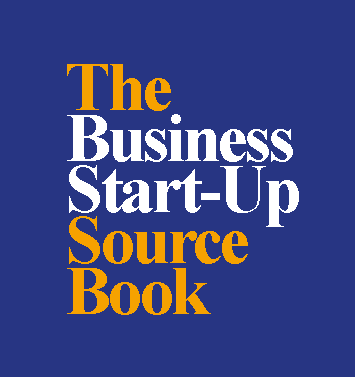Protecting what’s yours
Intellectual Property – The Value Within
An introduction to Intellectual Property for Business, from the Intellectual Property Office (IPO)
What is Intellectual Property (IP)?
Every business starts with an idea, and every business owns or uses some form of intellectual property (IP). This could include your website, business name or logo, through to assets such as innovative technologies, know-how, designs – or even a secret recipe.
Unlike the products they protect, IP assets cannot be seen or touched. So, it can be difficult for businesses to identify and maximise their true value. Just like other forms of property, you can buy, sell, and license IP.
IP Rights can enable their owner to take action under civil law to try and stop others from replicating, using, importing, or selling their creation.
One of the first things you should do is understand how to protect your IP. You could invest time and money in your business, only to later find the IP already belongs to someone else.
You should also do some research to make sure you’re not infringing someone else’s IP.

What are the different rights?
The different types of intellectual property are:
Patents: These protect new inventions and cover how products work, what they do, how they do it, what they are made of and how they are made.
Trade marks: Your brand is a powerful tool – and trade marks protect brands. This could be for a business name, a product, or a service. The trade mark could be made up of words, logos, or a combination of both and can even be sound or action based.
Registered designs: These protect the overall visual appearance of a product.
Copyright: This protects literature, artistic works, photographs, music, dramatic works, software, databases, films, radio and television broadcasts, sound recordings and published editions.
Trade secrets might also be important to your business. The law of confidentiality protects trade secrets. To keep trade secrets protected, you must establish that the information is confidential, and ensure that anyone you tell about it signs a nondisclosure agreement (NDA). If they then tell anyone about it, you may be able to take legal action.
Why do these matter – and where to begin?
Your IP could be as valuable as your plant, premises, or stock. It could even be your most asset, which you could use to secure finance for company growth.
Most successful businesses, large or small, are built on well managed ‘intangible assets’ like IP.
But do you know how to protect and exploit these assets?
A business can’t manage what it doesn’t measure, and we recommend the Intellectual Property Office (IPO)’s IP Health Check as a great place to start your IP journey. Identifying what intellectual property (IP) your business owns can help you not only protect it, but maximise its true value.
Our YouTube channel is packed with informative videos and is another good starting point.
What is in a name?
By now, you’ll have already chosen a name for your business – but there still some common misconceptions to be aware of.
For example, registering your company name with Companies House will not, alone, be enough to prevent others from using that name. If you want to be in a stronger position to stop others from trading under this name, you’ll need to register your business name as a trade mark.
You may also wish to trade using a different name to your registered name. It’s a good idea to check the trade mark database before deciding to trade under this name, and where in doubt seek professional advice.
The IPO is here to help
The IPO’s free online IP for Business tools and training are a great place to begin when you take your business to market. These have been accessed more than 204,680 times, helping SMEs make the most of their ideas. You can learn more about IP rights with our IP Equip e-learning tool: this covers the basics of copyright, designs, trade marks and patents.
Understanding your IP also helps reduce your exposure to business risk, and we would recommend undertaking comprehensive IP searches at the outset. This will help identify potential infringement issues with third parties’ IP at an early stage. A search for registered rights (patent, trade mark or registered design) can help you with this process.
Integrating an IP strategy into your business plans can also play a crucial role when you need to raise finance. Our IP for Investment tool can help you identify and assess your IP assets in the context of your business strategy.

Know before you go – a strategy for success
At some stage, you may want to sell to customers overseas – perhaps via the internet. Wherever you might want to do business, it is important that you understand how to protect your IP before entering the market.
It is a lot easier to jump through any hurdles before realising it might be too late to act. You will also need to do some research to make sure you’re not infringing someone else’s IP. There is lots of information about the IPO’s international IP service on GOV.UK and this is a great starting point.
Managing IP abroad can be very complex. It is important that you understand the steps you should take to protect your IP before entering the market and we’d always recommend getting advice from an IP professional.
If you’re thinking about trading overseas or exporting your products, you should also consider how you protect your registered IP rights strategically. Identifying potential future markets and manufacturing bases could help you with identifying territories of interest. The IPO attaché network can support you with this. We have also produced country guides which will help you apply these principles in the markets throughout the world.
“Intellectual Property exists in every business, whether you realise it or not. If you have a website or an app, you’ll need to think about copyright. If you have a business name, you’ve created a brand and therefore should think about registering a trade mark. If you are creating and producing creative and innovative products, you could potentially have a patent.
“The IPO has a highly focused and experienced business engagement team, we’re here to assist SMEs with their IP strategy, and help them identify which areas of IP are most important for them. We love getting out and about talking to businesses, and run events throughout the year – both virtual and face to face – in different parts of the country. If you’d like a quick chat with us about the IP in your business, please just drop us an email at business.engagement@ipo.gov.uk. We’ll be delighted to help wherever we can.”
Emma Richards –
Ipo’s Business Engagement Manager
The right support for your journey
You can get further help and advice from several different sources, such as regional business support providers, who will be keen to offer expert guidance on the IP in your business.
The British Library Business and IP Centre supports entrepreneurs, inventors and small businesses.
The UK Patent Library Network (Patlib) and Business and IP Centres (BIPCs) also offer guidance and support materials on IP and business.
When the time comes to get independent business, legal or other professional advice, it’s a good idea be proactive in engaging with specialist IP professionals. Expert IP knowledge and support can be accessed through the Chartered Institute of Patent Attorneys (CIPA) and Chartered Institute of Trade Mark Attorneys (CITMA).
Taking Stock
As your business grows, you should take stock of your IP assets. This is called an ‘IP Audit’ and it will help you in valuing your IP. There are a number of ways to value IP rights, and no valuation method would be appropriate for every situation.
WHO WE ARE
The Intellectual Property Office (IPO) is the official UK government body responsible for intellectual property (IP) rights including patents, designs, trade marks and copyright.
IPO is an executive agency, sponsored by the Department for Business, Energy & Industrial Strategy
Let’s get together
Our dedicated support programme for businesses includes workshops and tailored seminars across the UK and online, and there’s lots of information to guide you available via our YouTube Channel.
Why not attend some of the events listed on our IPO events calendar ?
The calendar is updated regularly, so keep checking it to see what’s new.
Comprehensive information about our events, guidance, tools and case studies for business is available on our website on GOV.UK at www.gov.uk/government/publications/intellectual-property-for-business
You can also follow us on Facebook, Twitter, Instagram, YouTube and LinkedIn
ALWAYS SEEK INDEPENDENT LEGAL ADVICE
This information and that found at the links provided DOES NOT provide legal, business or other professional advice so if you are in any doubt, you should always get independent advice.



